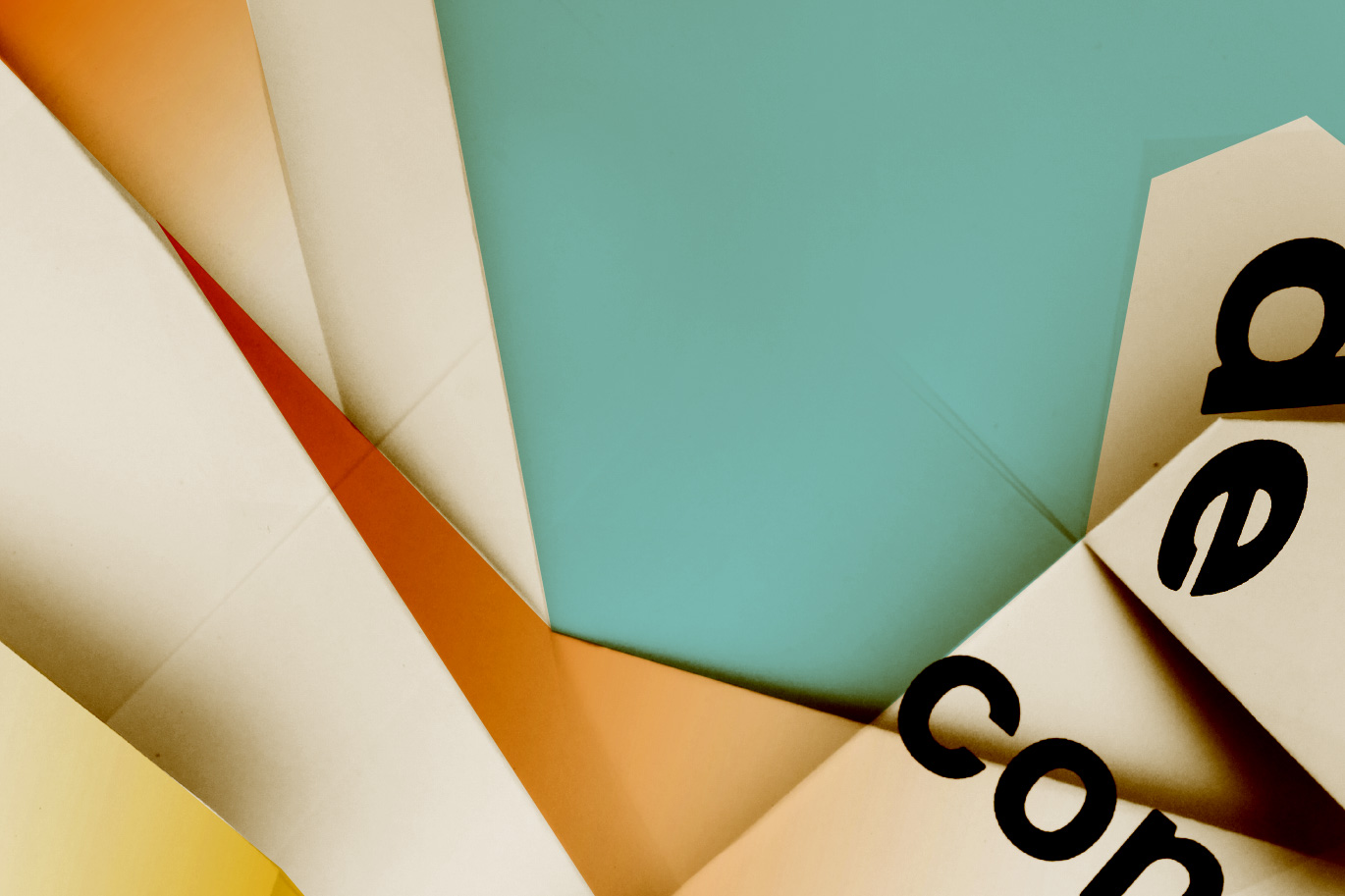- Summer 2019
Syllabus Description:
Note: This course has prerequisites that can be waived with an add code. This course is open to all students in summer quarter. Please email the Instructor at roesler@uw.edu to obtain an add code.
Introduction
Interaction Designers shape experiences for interactions between people, artifacts, and environments. This class introduces students to various approaches to designing interactive systems from a studio-based design perspective. The class focuses on the design of affordances for interactions by representing, organizing, and addressing functions, information and different perspectives, resulting in experiences of use. A series of lectures, discussions, and small projects explore the role of interaction designers in the development of interactive products, systems, and services. Students will learn how to research, design, and integrate interactive artifacts into the context of future use. We will examine the design of interactive systems in the context of design practice in Interaction Design, Human-Computer Interaction, Computer Science, and Engineering and explore the intersections between design and HCI research.
Three design projects will apply the foundations of Interaction Design to a broadly defined design challenge, leading from understanding the design situation to ideation, to the conceptual design of an interactive system.
Course Objectives
By the end of this course, you will be familiar with the basic concepts, techniques, and knowledge of Interaction Design: Readings will introduce you to knowledge about the foundational aspects of interactive systems in everyday environments and expert domains. The class will prepare you to apply various design techniques that are appropriate in a given context to change an existing design situation into a desirable one.
A sequence of lectures, discussions, and design exercises will familiarize you with basic interaction design techniques such as design research, ideation, interaction models, interface design, exploring design directions, and reviewing design concepts as prototypes. Emphasis will be on interaction flow, visual design and experience, and a story-driven design process.
The interdisciplinary format of the class will provide you with plenty opportunities to learn about a variety of fields that participate in the design of interactive systems. This cross-disciplinary perspective prepares you to understand others’ understanding, vital in complex interaction design problems where you will work as a designer in a team of experts from other interaction design related fields.
A series of compact interface design case studies initiates questioning existing solutions and revisiting them from an Interaction Design perspective. The class has an emphasis on lectures, design projects, presentations, class discussions, and readings.
Class Format
Students will meet two days a week, Mondays and Wednesdays from 12:40 - 3:20 for a 2 hours 40 minutes class session. Readings and homework will also be assigned.
Readings
Buxton, Bill (2007). Sketching User Experiences: Getting the Design Right and the Right Design. San Francisco: Morgan Kaufman.
Available online through UW Libraries: http://site.ebrary.com.offcampus.lib.washington.edu/lib/uwash/reader.action?docID=10206489
Norman, Donald (2013). The Design of Everyday Things, Revised and Expanded Second Edition. Basic Books, New York.
Available online through UW Libraries: http://washington.eblib.com.offcampus.lib.washington.edu/patron/FullRecord.aspx?p=1167019&echo=1&userid=TN9akRI1Amdna26NBs0kGvgeYxWotVYx&tstamp=1466454091&id=5E1FBD24D1635EFCC63E0727D37766F58441CBD9
Additional Readings will be distributed electronically.
Course Schedule
A. Interaction Design - Principles and Frameworks
June 24 - Overview: What is Interaction Design?
June 26 - The nature of interactions: Perception - Cognition - Action
July 1 - Representation: Apollo 13 case study
July 3 - Interface – World Relationship: Three Mile Island case study
- Pacing: Air France Flight 447 case study
July 8 - Systems: Relationships and Adaptations
July 10 - The Design Process
B. Design Project 1: Interface
July 15 - Introduction to design project 1 - start work on project in the studio
July 17 - Design project 1 presentation and review. In class critique
C. Design Project 2: Experience Capture
July 22 - Introduction to design project 2 - start work on project in the studio
July 24 - Interaction capture: drawing, photo, and video
July 29 - Storyboard development
July 31 - Design project 2 due: Presentation of slide-based prototype to class
D. Design Project 3: Experience Design
Aug 05 - Introduction to design project 3 - start work on project in the studio
Aug 07 - Design Ideation
Aug 12 - Concept development
Aug 14 - Interaction Walk-through: slide-based prototype and video prototypes
Aug 19 - Presentation design
Aug 21 - Project 3 due - Presentation and Review with class
No Final Exam in Summer Quarter
Grading and Evaluation
Grading is comprised of course participation (15%) and three assignments (15% A1, 30% A2, 40%A3).
Grading Key
3.9-4.0 The highest possible performance in all aspects of the course with work exemplifying exceptional quality. Exhibits outstanding creative potential.
3.5-3.8 Exhibits creative potential with superior performance in most aspects of the course; high quality in the remainder. Well prepared for subsequent courses in the field.
3.2-3.4 High performance in most aspects of the course. Very good chance of success in subsequent courses in the field. Exhibits some creative potential.
2.9-3.1 Good performance in some of the course; satisfactory performance in the remainder. Exhibits some creative potential. Good chance of success in subsequent courses in the field.
2.5-2.8 Demonstrates the minimum amount of research needed to complete the course with satisfactory performance.
2.2-2.4 Met basic requirements in most of the course, with the remainder being somewhat substandard.
1.9-2.1 Evidence of some learning but generally substandard performance. Marginal chance of success in subsequent courses in field.
0.7-1.8 Little evidence of learning. Poor performance in all aspects of the course. Totally unprepared for subsequent courses in the field.
Instructor Contact
Prof. Axel Roesler. The best way to reach me is per email: roesler@uw.edu.
Office Hours
Wednesdays 3:20 - 4:30 by appointment. My office is located in the Art Building, room 238.
Equal Opportunity
The School of Art + Art History + Design reaffirms its policy of equal opportunity in accordance with UW policy and applicable federal and state statutes and regulations.
Violence Awareness and Prevention
• Preventing violence, discrimination, harassment, and retaliation is everyone’s responsibility.
• Call 911 for emergency help. Call 206-685-SAFE to report non-urgent threats or concerns.
• Safe Campus website at www.washington.edu/safecampus.
• Concerns about sexual harassment http://studentlife.washington.edu/?s=title+ix http://depts.washington.edu/livewell/saris/sexual-harassment/
• Don’t walk alone. Campus safety guards can walk with you on campus after dark. Call Husky NightWalk 206-685-WALK (9255). There is also a NightRide option at the following web site, http://www.washington.edu/facilities/transportation/uwshuttles/NightRide
• Connect to UW Alert. Register your mobile number to receive instant notification of campus emergencies via text and voice messaging. Sign up online at www.washington.edu/alert
Concerns about a Course, an Individual, or an Issue Concerning the SoA
• Talk with the instructor in charge of the class as soon as possible.
• If this is not possible or productive, make an appointment with the Director of Academic Advising, 104 Art, 206-543-0646 or the Director of the School of Art, 102 Art, 206-685-2442.
Disability Accommodation
• To request academic accommodations due to a disability, please contact Student Disability Services, 448 Schmitz, (206) 543-8924 (V/TTY) or uwdss@u.washington.edu.
• If you have a letter from Student Disability Services requesting academic accommodations, please present this to your instructor on the first day of class.
Participation Policy
• Absences from class prevent participation and may negatively affect grades.
• If you miss class due to illness or emergency, notify your instructor, provide documentation, and set up a timeline to complete missed assignments and exams.
• Students are required to take exams as scheduled by the University of Washington.
• Exceptions may be granted in cases of documented emergencies but must be approved by the instructor.
Plagiarism
“Admission to the university carries with it the presumption that students will conduct themselves as responsible members of the university community. As a condition of enrollment, all students assume responsibility to observe standards of conduct that will contribute to the pursuit of academic goals and to the welfare of the university community. This includes practicing high standards of academic and professional honesty and integrity.” (See the Student Code of Conduct, Chapter 478-120 WAC) Academic misconduct that includes cheating and plagiarism is unacceptable. Borrowing, paying for, or copying the work of others and presenting it as your own dishonors your reason for seeking a degree at UW and breaks the trust that faculty have for you as a member of this academic community. It undermines your ability to learn and mature as an individual.
What is Cheating?
• Copying answers from another student’s test, quiz, assignment, or paper.
• Using pre written notes, cell phones or any other method to secretly look at information that helps you answer test questions.
• Using a cell phone or other device to take pictures of tests and exams and send them to another student, or text message questions and answers to another student.
• Pay another student to do your homework.
What is Plagiarism? It’s cheating, too.
• Buy a term paper or essay written by someone else and turn it in as your own.
• Copy word-for-word another person’s opinions or thoughts from a book, magazine, newspaper or online article and pass them on as your own work.
• Borrow or copy the drawings, paintings, sculptures or designs of another student or artist and submit them as your own.
• Paraphrase or summarize someone else’s opinions or thoughts and pass them on as your own.
Incomplete Grades
A grade of zero will be given to any assignment, paper, test or quiz that is found to be the result of plagiarism or cheating.
If you have any questions about what constitutes cheating or plagiarism please feel free to raise the issue in class, check with your instructor during office hours, or talk with an Academic Adviser in Art 104.
To request an “incomplete” a student must have:
• Been in attendance and done satisfactory work through the eighth week of the quarter.
• Satisfactory proof for the instructor that the work cannot be completed because of illness or other circumstances beyond their control.
Grade Appeal Procedure
If you think the grade you received is incorrect:
• Contact the instructor to discuss your concern.
• If not resolved, make an appointment with the Director of Academic Advising, 104 Art, 543-0646.



